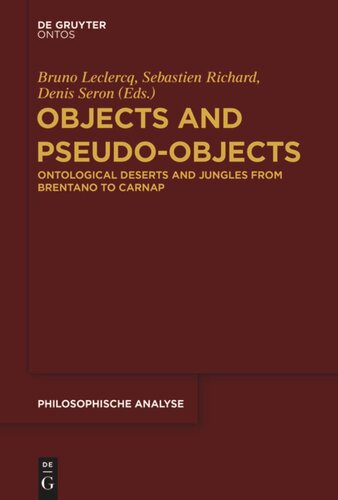

Most ebook files are in PDF format, so you can easily read them using various software such as Foxit Reader or directly on the Google Chrome browser.
Some ebook files are released by publishers in other formats such as .awz, .mobi, .epub, .fb2, etc. You may need to install specific software to read these formats on mobile/PC, such as Calibre.
Please read the tutorial at this link: https://ebookbell.com/faq
We offer FREE conversion to the popular formats you request; however, this may take some time. Therefore, right after payment, please email us, and we will try to provide the service as quickly as possible.
For some exceptional file formats or broken links (if any), please refrain from opening any disputes. Instead, email us first, and we will try to assist within a maximum of 6 hours.
EbookBell Team

4.0
86 reviewsThe development of science, logic, mathematics, and psychology in the 19th century made it necessary to introduce a growing number of new entities, of which classical empiricism and strong extensionalism were unable to give a wholly satisfying account. One of the major issues confronting the 20th century philosophers was to identify which of these entities should be rationally accepted as part of the furniture of the world and which should not, and to provide a general account of how the latter are nevertheless subject to true predication. The 13 original essays collected in this volume explore some of the main approaches to this issue in the 20th century, including Brentano, Meinong, Husserl, Carnap, Frege, Twardowski, Kotarbinski, Nicolai Hartmann, and realist phenomenologists.